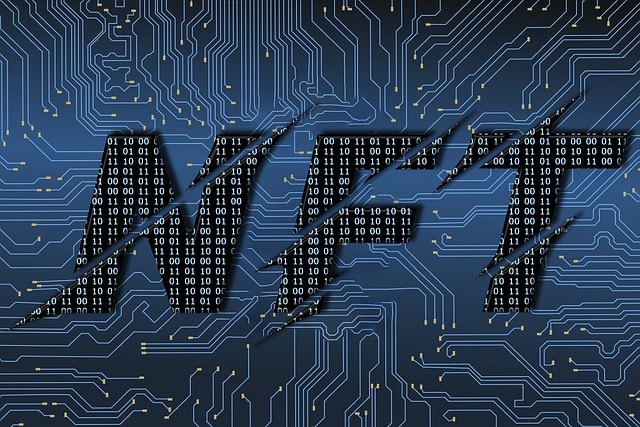Soulbound tokens (SBTs) are a relatively new concept in the ecosystem of blockchain technology that has been adopted by the co-founder of Ethereum – Vitalik Buterin and his partners, from a popular fantasy game, World of Warcraft.
The original SBT whitepaper released under the title “Decentralized Society: Finding Web3’s Soul” depicted a fully decentralized society governed by it’s users where SBTs are meant to play the role of digital identity tokens.
Despite the revolutionary idea and the purposes it intends to serve in the digital landscape, few are familiar with how these Soulbound tokens work, and how they can affect the future of Web3 technologies and their development.
What are Soulbound tokens (SBTs)?
A Soulbound token (SBT) is a non transferable token that is permanently tied to a private wallet, a so called “soul”. The essential purpose of SBTs is the establishment or confirmation of it’s holders credibility in a particular niche or a certain area of everyday life.

In other words, they aim to prove one’s identity using blockchain technology. The data recorded on a non transferable Soulbound token can include an array of relevant qualifications, depending on what the token is representing about a person as an entity.
For example, SBTs can include a person’s medical records, education history, professional certificates, membership statuses and/or any other metrics of factual information vital to form a digital identity. In this regard, SBTs are also known as tokens of Proof of Knowledge.
Soulbound tokens are generally split in two types, depending on who distributes them:
Self-certified SBTs. A Self-certified Soulbound token includes information that the owner himself deemed relevant to represent to other users within a specific network.
Soul-issued SBTs. Soul-issued tokens refer to souls in the form of companies, institutions or various individuals that may issue these tokens as poof of ownership, credentials, affiliation or memberships.
The technical mechanics of SBTs
The core feature of SBTs that makes them unique among all other tokens is their non transferability. A concept that was borrowed from in-game mechanics implemented in the popular massively multiplayer online game, World of Warcraft.

When completing quests or executing special tasks, players pick up or earn rare and epic items that are automatically bound to the user. They cannot be sold to other players or transferred by any means on the market, in-store or elsewhere.
The same exact logic applies to the mechanics of how Soulbound tokens work. Once a SBT is created and assigned to a personal wallet – the “soul”, it is infinitely bound to it and thus cannot be transferred to a different wallet.
Another vital feature of these non transferable tokens originates from their nature. Since SBTs cannot be traded or exchanged on the market, they do not carry a monetary value. This indicates the significance of their core purpose and the sustainability of their mechanics.
What is the use of Soulbound tokens?
As Vitalik Buterin expressed in the original SBT whitepaper, there are many limitations in the Web3 niche including Sybil resistance issues, key management, identity verification issues, and provenance.

In the scope of these difficulties, SBTs potentially have a wide range of use cases that can provide solutions to existing issues in various domains. Here are just a few practical applications for SBTs:
NFT ownership
A serious issue in the space of NFT art that still causes much damage to investors is the malicious activity of dishonest individuals, that capitalise on the names of legitimate and famous artists by selling digital assets under their guise.
In this regard, SBTs could be used as a digital verification tool. By linking Soulbound tokens to the NFT collections and corresponding “souls”, the potential buyer could verify the identity of the artist, whilst the artist could build a solid reputation around the provenance and rarity of their art.
Employment and job vacancies
In the physical world, SBTs can be utilised by individuals and companies to collect and store one’s professional achievements, work experiences, professional certificates, and other relevant information and data.
In future, these non transferable Soulbound tokens, or even whole collections of them, could be used by job applicants to submit as digital CVs, ensuring a proven track record of their work. On the other hand, companies could improve their hiring efforts and cut down on resources spent in the process.
Gaming and interactive entertainment
Another interesting use case for SBTs lies within the gaming and the interactive entertainment world. Any Web3 activity or user interactions could be converted into tokens that represent a non transferable reputation.

By allowing such functionality in the Web3 space, users could level up their digital identity in the form of avatars, by being a good citizen and progressing faster in the game, saving valuable time to achieve necessary goals.
Verification of credit history for borrowers
Novel methods of digital verification using the Soulbound tokens could be implemented in traditional bank credit scores or profiles. A user’s borrowing history and reputation could be built by issuing SBTs once a loan has been granted and subsequently cleared.
This will allow individuals to create a trustworthy profile with organisations and financial institutions to acquire loans with ease. At the same time, organisations could minimise risks by operating in a transparent system where people cannot hide their ongoing obligations.
Souldrops as incentives and rewards
Web3 is highly dependent on airdrops and token sales when it comes to attracting new members into a young community or project. Unfortunately these methods have outlived themselves and no longer accumulate the desired results.
Soulbound tokens can be used as unique incentives for online or offline events. By running a Souldrop on a Proof of Attendance Protocol (POAP), project owners can issue SBTs during the event. Participants could then prove their attendance by submitting these tokens to receive rewards in return.
The benefits and advantages of SBTs
Among the many positives that urge the community to further develop SBT technology is the ability to facilitate DAO governance voting system. Soulbound tokens are capable of making it unprejudiced, and driving the future development of projects for the good.

DeFi protocols often award early users with native project tokens that provide them with governance rights to vote on future developments, also known as governance tokens. These assets are granted as a sign of appreciation for trust, loyalty and support of the project.
Unfortunately, malicious individuals or groups of “bad actors” that hold substantial capital can manipulate voting proposals and force their selfish interests, contrary to the communities wishes, by bulk buying these tokens.
Instead, DAOs could issue SBTs that assign voting power based on a user’s involvement in the project, and the quality of their interactions with the community, therefore ensuring a trustworthy and transparent system.
By implementing a reputation based voting system, it would no longer matter how many tokens one holds or what the majority voting power demands, because the voting control will remain in the hands of initial users who have genuine interest and care for the protocol and the well being of the project.
Potential risks and challenges
One of the biggest concerns for Soulbound tokens (SBTs) is that losing private keys to personal wallets or “souls” is a common event. Moreover, despite the fact that SBTs are non transferable, users can still transfer the private wallets linked to these tokens.

However the “Decentralized Society: Finding Web3’s Soul” whitepaper considered the risks of losing private keys, and proposed a recovery method called “community recovery”, which employs a model where a soul’s private keys could be reacquired with the help of other members of the network.
Another risk worth mentioning are Sybil attacks, which are closely related to the aforementioned DAO governance model. A Sybil attack is the attempt of an individual or group of people to overthrow the voting proposals, by buying out the majority of governance tokens.
In a scenario where SBTs are issued instead of these tokens, and a whale in the community loses access to his “soul” due to fraudulent activity, the scammer could obtain an overwhelming amount of tokens which leads to similar manipulation.
What is the difference between Soulbound tokens and NFTs?
SBTs are often called non transferrable NFTs, and because of this many confuse the concepts. While there is a similarity in the method of their creation, there is a core difference between the two that makes them distinctively different.

NFTs are connected on a blockchain by an identification code when minted, and represent ownership of unique art or property as a symbol of status and wealth. Thus they are non fungible, yet they can be sold and/or traded on the market. Therefore, essentially, they are transferable NFTs.
SBTs on the other hand are minted similarly, yet they represent a person’s identity and aim to transform the NFT concept into something above money and wealth. Therefore, essentially, they are non fungible and non transferable NFTs.
The evolving future of Soulbound tokens
As of mid 2022, Soulbound tokens existed in the whitepaper only. However one of it’s co-authors, Glen Weyl, shared bright predictions and expectations that the practical applications of SBTs would see the light of day by late 2022.

One of the earliest adopters that implemented the Soulbound tokens technology was Binance. The native token called Binance Account Bound (BAB) was the first ever SBT issued. The purpose of the BAB token was the delivery of a solution to identity verification issues.
Conclusion
The Soulbound tokens concept proposed by Vitalik Buterin is a promising idea, that is capable of providing both individuals and organisations with opportunities to establish trustworthy and transparent operations and relationships.
However, the existing concerns inherent to decentralised technology, such as human error or fraud, inflict additional challenges for SBTs that are yet to be overcome.
Nonetheless, the immense scope of the practical uses for Soulbound tokens, and their adoption by one of the biggest players in the market, hints that it’s only a matter of time before the Cryptocurrency community will see them realised.
The content provided here is for informational purposes only. It is not intended as personal investment advice and does not constitute a solicitation or invitation to engage in any financial transactions, investments, or related activities. Past performance is not a reliable indicator of future results.
The financial products offered by the Company are complex and come with a high risk of losing money rapidly due to leverage. These products may not be suitable for all investors. Before engaging, you should consider whether you understand how these leveraged products work and whether you can afford the high risk of losing your money.
The Company does not accept clients from the Restricted Jurisdictions as indicated in our website/ T&C. Some services or products may not be available in your jurisdiction.
The applicable legal entity and its respective products and services depend on the client’s country of residence and the entity with which the client has established a contractual relationship during registration.




